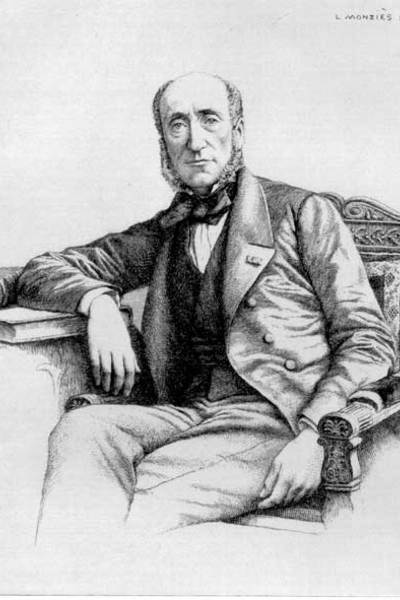
Michel Chevalier on two kinds of political power in America, the Caesars and the Commissioners (1835)
Found in: Society, Manners and Politics in the United States
The French economist Michel Chevalier (1806-1879) visited the United States in 1835 and observed that the power of the state governors (the Cæsars) were declining, while the power of the Commissioners of public works and banks were expanding rapidly:
Presidents, Kings, Tyrants, & Despots
In each State there are two authorities, distinct in their composition and their attributes. The one corresponds to the government in the European social system, to the old Cæsar. At its head is a magistrate who bears the old name of Governor, with the pompous title of commander-in-chief of the sea and land forces. This authority is reduced to a shadow. …
… by the side of the power of Cæsar, in political affairs, another regular authority is beginning to show itself, which embraces within its domain the modern institutions and new establishments of public utility, such as the public routes, banks, and elementary schools, that, in the United States, have acquired an unparallelled magnitude. Thus there are Canal Commissioners, Bank Commissioners, School Commissioners. Their power is great and real. The Canal Commissioners establish administrative regulations, which they change at will, without previous notice. They fix and change the rate of tolls; they are surrounded by a large body of agents, entirely dependent upon them and removeable at pleasure; they are charged with the management of large sums of money …